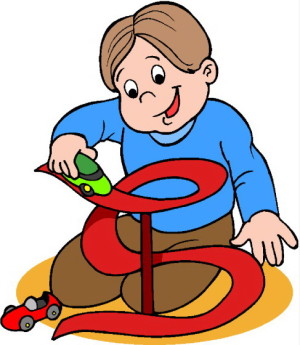Play Therapy
 1. What is play therapy?
1. What is play therapy?
Play therapy is based upon the fact that play is the child’s natural medium of self-expression. It is an opportunity which is given to the child to “play out” his/her feelings and problems just as, in certain types of adult therapy, an individual “talks out” his/her difficulties.
2. How does play therapy work?
Play therapy works with the help of some toys which act as therapeutic tool. The child plays with the toys used in therapy and by playing out, the negative emotions present in the child is brought to the surface, gets them out in the open, faces them, learns to control them or abandons them. By doing so, the child realizes the power within, to make his own decisions and to become psychologically more mature.
3. What all problems can be treated through play therapy?
In play therapy, the child is given the opportunity to play out his/her accumulated feelings of tension, frustration, insecurity, aggression, fear, bewilderment, confusion and all the negative aspect of emotions can be dealt. It works also for children suffering from inattentiveness, distractibility and hyperactivity.
4. What is the age group to whom play therapy can be provided?
Play therapy can be ideally provided to children of age group ranging from 4 to 12 years.
5. What is the tenure of play therapy?
The tenure generally ranges from 9 to 12 weeks (excluding individual differences) and the session takes place once in a week.
6. Why is play therapy important for children?
The play therapy is good growing ground for the child. In the security of this room where the child is the most important person, where he is in command of the situation and of himself, where no one tells him what to do, no one criticizes what he does, or interferes into his private world. The child suddenly feels that here he can unfold his wings and he is accepted completely.
7. What is the result of play therapy?
With the help of this therapy, the child can become more mature, more positive in his attitudes and more constructive in the way he expresses his inner drive. It is the same inner drive which helps in self-realization, maturity, fulfillment and independence. This psychological independence extends the boundaries of his mental capacities.
